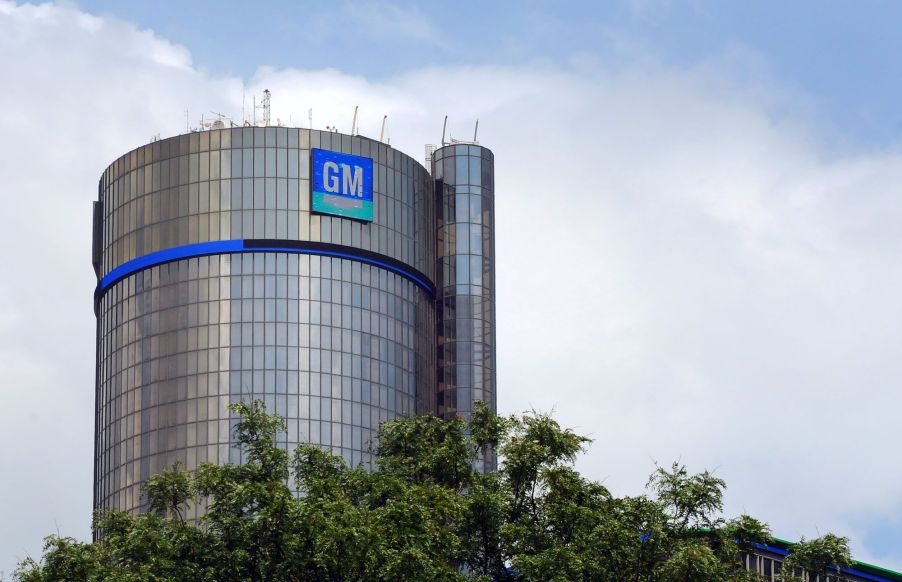
GM Announced Their Energy Recovery System That Guarantees No Energy Is Wasted
The electric vehicle revolution is raging, and automakers are coming up with different technologies to release high-quality EVs and overcome industry challenges. Recently, General Motors (GM) revealed plans to fit its Ultium-based EVs with a heat pump technology that will help boost performance, range, and charging speed. This energy recovery system ensures no energy is wasted.
The Ultium based EV technology energy recovery system

GM has introduced a standard feature via a patented heat pump that helps capture and reuse waste energy from the EV battery. The main objective of this technology is to increase the vehicle’s range, charging speed, and minimize battery energy required for heating. This new technology traces back to the 1990s when GM engineers developed a heat pump for its first-ever EV.
The Ultium energy recovery system is available in all Ultium vehicles underproduction today and will be released soon. According to GM, the Ultium energy recovery system increases the vehicle’s range by 10%. Additionally, it enhances efficiency charging via warming the batteries before charging.
The technology also facilitates the recovery of wasted heat energy from electronics, vehicle batteries, and propulsion components. Similarly, the Ultium energy recovery system can also draw heat from humidity in and outside a car.
According to GM, this technology will offer better performance and range from its battery packs to similar packs from competing brands that don’t use heat pumps or similar technology. According to InsideEVs, the systems can store excess heat and release it when needed.
Vehicles with this feature have the potential to charge faster via battery preconditioning. The company claims this technology is one of the contributing factors to the GMC Hummer EV’s excellent acceleration performance.
Upcoming General Motors EVs
GM has launched many EVs already in the market or will be available in the next few years. The good news is that these EVs will come with the new energy conservation technology that improves performance, range, and charging speed.
In a recent address to the 2022 Consumer Electronics Show (CES), the CEO and chair of GM, Mary Barra, revealed plans of the company to launch new EV models into the market in the coming decade.
The company is already selling the 2022 GMC Hummer EV pickup from December 2021. It’ll launch the Blazer EV and Equinox EV in 2023, along with its first Cadillac EV. GM is also increasing its production of Cadillac Lyriq SUV and GMC Hummer EV pickups.
Toward the end of 2023, GM will release the 2024 Chevrolet Silverado EV, Rivian R1T, and the Ford F150 Lightning. According to Green Car Reports, GM reported over 110,000 reservations for the 2024 Chevrolet Silverado EV pickup.
There are also rumors circulating that electrified versions of the GMC Yukon, Cadillac Escalade, and Chevrolet Suburban are in the pipeline. The company CEO, Barra, says the company will launch heavy-duty electric trucks by 2035.
General Motors EV plan
GM is a global automaker focusing on advancing an all-electric future to make it accessible and inclusive to all. The Ultium energy recovery platform is one of the company’s strategies to provide high-performance EV vehicles to its customers. GM announced an investment of $35 billion in EVs by 2025. It also plans to release 30 new global EVs by the same time.
GM plans to spend $6.6 billion on establishing an EV battery cell plant in Michigan to dethrone Tesla as the leading EV seller by 2025. This investment is part of GM’s North American production capacity of 1 million electric vehicles by 2025. The EV battery cell plant is in a joint venture with LG named Ultium Cells LLC.
GM has also projected sales of 1 million EVs globally by 2025 and revealed they are partnering with Honda to develop cost-effective electric vehicles. These vehicles will be available in the North American market by 2027. This joint venture will include using GM’s Ultium EV platform and the robust manufacturing capabilities of both automakers. The companies will leverage their strengths to create affordable compact electric vehicles.
To achieve its EV plan, the company is already establishing competitive advantages in software, batteries, manufacturing, vehicle integration, and customer service. GM’s EV plan responds to an increased demand for electric vehicles.


